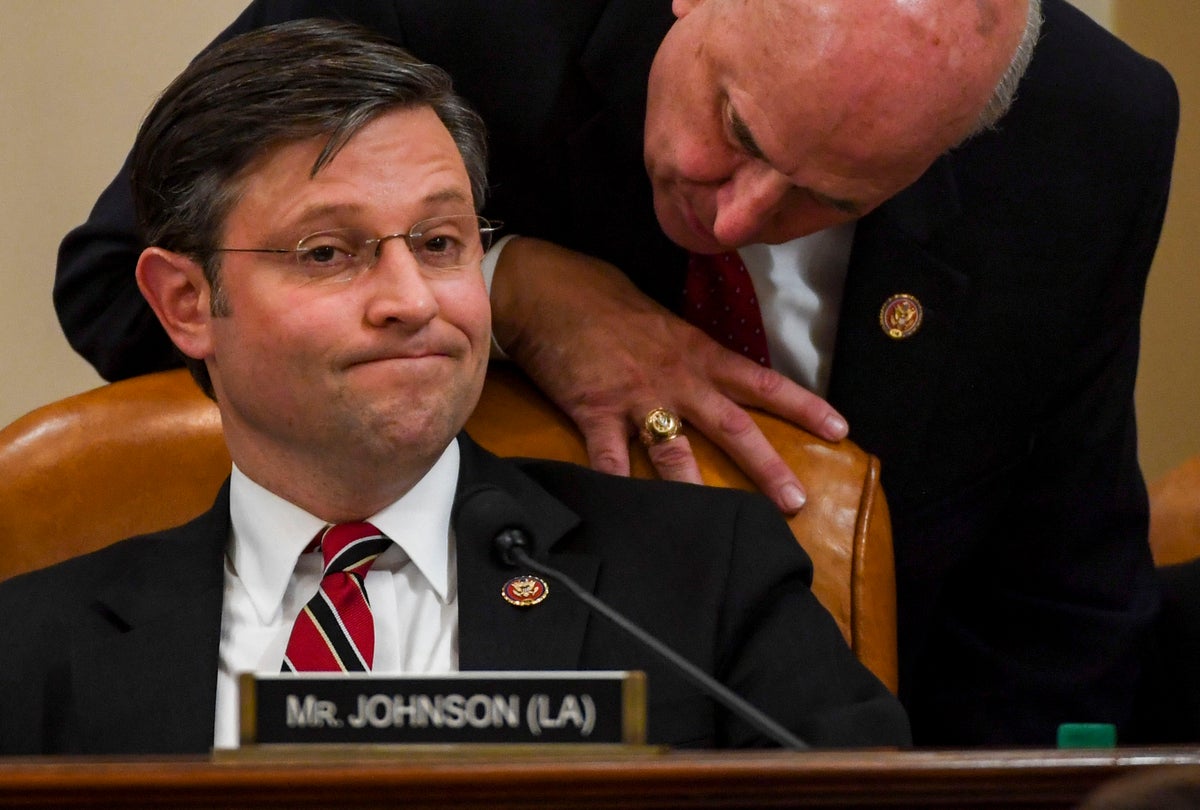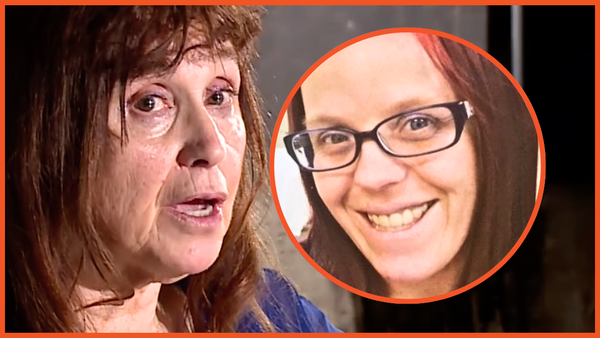
A bill backed by more than 30 House Republicans could be used to strip federal funds from public schools, libraries or hospitals that recognise Pride month, host popular drag queen story hours or make any mention of LGBT+ people.
The measure from US Rep Mike Johnson of Louisiana would ban institutions that receive federal funds from hosting “sexually oriented” discussion, materials and events where children could be present.
But the definition of “sexually oriented” broadly encompasses “any topic” that involves “gender identity, gender dysphoria, transgenderism, sexual orientation, or related subjects.”
LGBT+ advocates warn that the bill’s language is deliberately broad, a similar but more-expansive version of what critics have called state-level “Don’t Say Gay” bills used to restrict classroom instruction of LGBT+ people and events.
Critics have accused the sweeping proposal from 33 House Republicans of unjustly conflating LGBT+ people with sex and child abuse.
Human Rights Campaign government affairs director David Stacy said the bill is the latest “cruel” attempt from House Republicans to “stigmatize and marginalize the community, not in an attempt to solve actual problems but only to rile up their extremist base.”
“All students deserve to feel safe and welcomed in schools, but politicians like Mike Johnson are using the levers of government to dictate to children, their parents, and their educators what they can read, what they can learn, what they can say and who they can be,” Mr Stacy said in a statement.
Alejandra Caraballo, a clinic instructor at Harvard University’s Cyber Law Clinic, compared the measure to Florida’s “Parental Rights in Education Act,” which broadly prohibits classroom instruction on sexual orientation and gender identity and could open schools to lawsuits that threaten to chill classroom speech among LGBT+ students and teachers.
“Universities, public schools, hospitals, medical clinics, etc could all be defunded if they host any event discussing LGBTQ people and children could be present,” Ms Caraballo wrote on Twitter. “The way they define ‘sexually oriented material’ simply includes anything about LGBTQ people.”
One enforcement mechanism in the bill would allow private citizens to file lawsuits “against any public or private entity” perceived to be in violation of the measure.
“This will be a ban on all discussion of LGBTQ people in any entity that received federal funds,” according to Ms Caraballo. “It is so incredibly dehumanizing and hateful for congressmembers to draft a bill that would define under federal law who I am as a queer trans woman as being ‘sexually oriented.’ As if my very existence is harmful to children. It’s disgusting, heinous, and monstruous.”
“I’m confident the people introducing this bill are more likely to go to Hell than the kids they’re causing harm,” said Democratic congressman Mondaire Jones, noting that nearly half of LGBT+ youth have contemplated suicide.
Congressman Johnson said in a statement that the bill is an attempt to combat a “misguided crusade” among Democrats and their “cultural allies” to expose children to “sexual imagery and radical gender ideology.”
“This commonsense bill is straightforward,” he said. “No federal tax dollars should go to any federal, state, or local government agencies, or private organizations that intentionally expose children under 10 years of age to sexually explicit material.”
Children in US schools are not being exposed to sexually explicit instruction, but a vast majority of LGBT+ students routinely endure anti-gay and anti-trans abuse and harassment.
Fewer than one-quarter of LGBT+ students reported receiving any LGBT+-related instruction in their schools, according to the 2021 School Climate Survey published by GLSEN.
Roughly 16 per cent of LGBT+ students were taught positive lessons on LGBT+ people and events, while fewer than 8 per cent of LGBT+ students received any LGBT+-affirming sex education in schools, according to the survey.
Less than half of one per cent of LGBT+ students said LGBT+related issues were included in any of their textbooks and assigned readings.
But nearly all respondents reported hearing “gay” used negatively, and most heard discriminatory remarks about transgender people.
During the 2021-2022 academic year, roughly 83 per cent of respondents who attended school in person experienced harassment or assault.
House Republicans have cited a report from right-wing think tank The Claremont Institute that claims that curriculum used on military bases is “infused with cutting-edge left-wing pedagogical techniques in the service of radical gender ideology” as part of an attempt “to disrupt stable sexual identities.”
That article, “Grooming Future Revolutionaries,” also invokes a slur that baselessly accuses LGBT+ people and their allies as a threat to young people. The use of “groomer” and “grooming” on social media has exploded in the wake of the Florida law, while discriminatory posts from far-right social media influencers, government officials and members of Congress have amplified “groomer” posts to millions of people.
The bill is not likely to advance in a Democratically controlled Congress, but it is among several recent pieces of congressional legislation that echo state-level measures aimed at criminalising LGBT+ young people.
State lawmakers introduced more than 300 bills targeting LGBT+ people this year, and at least 30 passed state legislatures, the highest tallies for both figures in at least a decade, according to the Human Rights Campaign. Nearly half of those bills targeted transgender young people.
Those legislative efforts are likely to continue, as GOP candidates rally their base with a barrage of attacks against trans people ahead of November’s midterm elections.
LGBT+ advocates also argue that a lack of clear public information about transgender people and healthcare has fuelled anti-trans legislation. Only 8 per cent of Americans are following news about legislation targeting trans, according to the Pew survey.
“Most people don’t understand even what it means to be trans or what kinds of issues trans people face in their day to day lives,” Johnathan Gooch, communications director at Equality Texas, told Bloomberg News.
A poll from LGBT+ advocacy group The Trevor Project and Morning Consult found that a majority of US adults oppose blocking students from LGBT+ resources and educational materials, banning books from libraries, and banning classroom discussions about LGBT+ topics.
But the group discovered in another survey that fewer than one-third of US adults know someone who is transgender, and adults who were unaware of gender-neutral pronouns were more than twice as likely to not understand or support a transgender or nonbinary child.
“We still have a lot more work to do to increase understanding of transgender and nonbinary youth,” Trevor Project’s executive director Amit Paley said in a statement accompanying the report. “The clear association between adults knowing someone who holds a particular LGBTQ identity and feeling comfortable with that identity emphasizes the need to amplify trans voices, increase the diversity of LGBTQ representation in media, and improve public education around sexual orientation and gender identity.”







